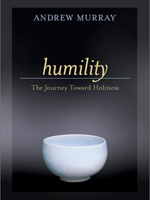Do Hard Things. That’s the title of a book I read this summer. Written by Alex and Brett Harris (19-year-old twin brothers of Joshua Harris—author of I Kissed Dating Goodbye) the book challenges teens to rebel against rebellion. To rebel against the low expectations people have of teens. The book is an invitation for teens to join the “rebelution.” To do hard things. It includes the challenge to respect the authorities in their lives, ask for direction and help and to collaborate.I’m no longer a teenager . . . yet the book spoke to me. It was a reminder that to be faithful to God and to the mission He has given the Seventh-day Adventist Church my life needs to be lived in constant rebellion against the standards of the world. That often means I have to do hard things.
Queen Esther was an early “rebelutionary.” We all know about Esther’s decision when called upon to risk her life. But it was all the “little” hard things that built her faith and prepared her for that big test.
Esther lived in a land of exile, her parents were gone and she was being raised by a wise older cousin. Esther’s outward beauty was so profound, yet it was surpassed by an inner beauty that allowed her to accomplish THE hard thing for God’s people. God knew He could trust Esther’s faith in Him. She sought and followed Mordecai’s godly counsel. She solicited the prayers of God’s people and her small group of maidens. She planned strategically and rose above the expectations of the enemies of God. The result was the saving of a nation and one more piece of the cosmic puzzle was put in place—preparing the way for Ezra and Nehemiah, the command in 457 B.C., prophetic fulfillment, and the Advent Movement.
Now other pieces need to be put in place before that cosmic picture is complete. God needs you and me to be faithful—to do hard things. To go where He wants us to go and to say what He wants us to say.
This blog post has been guest written by Pastor Esther R. Knott.
 After his sudden death last Friday, he’s become larger than life. And I for one miss him. I didn’t know Tim Russert, of course. But every Sunday morning I have timed my 10K run to end just as his “Meet the Press” was beginning. And for a few sweaty moments with my Sunday paper and breakfast, I would listen in on the celebrated journalist’s gentlemanly grilling of another public figure or two or three. “If it’s Sunday, it’s Meet the Press” was my preference, too. And, as it turns out, millions of Americans enjoyed the same weekly ritual. The accolades for Russert continue to pour in. What made this man so “familiar” with the public, and so beloved by his friends? What can those who “knew” him learn from his life? I sat down last Sunday and scribbled some random reflections. Live the joy of your life to the full each day. I was amazed at how many of his colleagues and acquaintances testified to the contagious exuberance with which Russert lived. He loved his work. He loved his work associates, from the veterans to the rookies in the Washington bureau. And he exuded it. What if we all did? Keep in touch with your roots and your family. Much has been made about his loyalty to the blue-collar neighborhood of Buffalo where he grew up. His best-selling book about his dad continues to speak volumes about Russert’s love for those dearest to him. And what’s so obvious is that Tim made certain his affections were obvious, too. On-air and off-air. On the phone to his boy two or three times a day. Everyone loved him for it. Celebrate the lives of your friends and acquaintances. If he knew you, and you were having a baby or surgery or mourning a loss, Russert was there to share the journey. Scribbled notes, little gifts, a visit, a phone call—apparently he made sure those he cared about knew he cared. What’s not to like about that? Do your homework. Russert was renowned for his early Sunday morning rehearsals alone in the studio. He read his questions aloud, imagined his guest’s responses, planned his rebuttal queries. He didn’t tolerate a lack of preparedness in his guest or himself. Mentor the young. I was intrigued at how many of television’s well-known reporters cut their eye teeth under Russert’s tutelage. He invested time and attention in the new team members, constantly exhorting them to pursue excellence. Share your devotion to your God and your church. The whole world knew Tim Russert was a faithful Roman Catholic. He didn’t keep it a secret. It was clear he was proud to be a member of his church, and unashamed to display his faith in God. True, he wasn’t an evangelical missionary. Yet in the world of hardball politics and journalism, Russert lived his faith. Would that there were more of him these days, wouldn’t you agree? Was he a saint? Hardly. But in a world where so many live such isolated and self-serving lives, here was a man who is being remembered for the very opposite. And in the eyes of God, isn’t that a value heaven celebrates, too?
After his sudden death last Friday, he’s become larger than life. And I for one miss him. I didn’t know Tim Russert, of course. But every Sunday morning I have timed my 10K run to end just as his “Meet the Press” was beginning. And for a few sweaty moments with my Sunday paper and breakfast, I would listen in on the celebrated journalist’s gentlemanly grilling of another public figure or two or three. “If it’s Sunday, it’s Meet the Press” was my preference, too. And, as it turns out, millions of Americans enjoyed the same weekly ritual. The accolades for Russert continue to pour in. What made this man so “familiar” with the public, and so beloved by his friends? What can those who “knew” him learn from his life? I sat down last Sunday and scribbled some random reflections. Live the joy of your life to the full each day. I was amazed at how many of his colleagues and acquaintances testified to the contagious exuberance with which Russert lived. He loved his work. He loved his work associates, from the veterans to the rookies in the Washington bureau. And he exuded it. What if we all did? Keep in touch with your roots and your family. Much has been made about his loyalty to the blue-collar neighborhood of Buffalo where he grew up. His best-selling book about his dad continues to speak volumes about Russert’s love for those dearest to him. And what’s so obvious is that Tim made certain his affections were obvious, too. On-air and off-air. On the phone to his boy two or three times a day. Everyone loved him for it. Celebrate the lives of your friends and acquaintances. If he knew you, and you were having a baby or surgery or mourning a loss, Russert was there to share the journey. Scribbled notes, little gifts, a visit, a phone call—apparently he made sure those he cared about knew he cared. What’s not to like about that? Do your homework. Russert was renowned for his early Sunday morning rehearsals alone in the studio. He read his questions aloud, imagined his guest’s responses, planned his rebuttal queries. He didn’t tolerate a lack of preparedness in his guest or himself. Mentor the young. I was intrigued at how many of television’s well-known reporters cut their eye teeth under Russert’s tutelage. He invested time and attention in the new team members, constantly exhorting them to pursue excellence. Share your devotion to your God and your church. The whole world knew Tim Russert was a faithful Roman Catholic. He didn’t keep it a secret. It was clear he was proud to be a member of his church, and unashamed to display his faith in God. True, he wasn’t an evangelical missionary. Yet in the world of hardball politics and journalism, Russert lived his faith. Would that there were more of him these days, wouldn’t you agree? Was he a saint? Hardly. But in a world where so many live such isolated and self-serving lives, here was a man who is being remembered for the very opposite. And in the eyes of God, isn’t that a value heaven celebrates, too? The word that stumped him was “quaquaversal.” How these kids survive as long as they do in the Scripps National Spelling Bee is beyond me! Ten-year-old Tony Incorvati of Ohio made it to the third round a few days ago, until he ran into that amalgamation lurking in the bowels of some dusty dictionary. And no matter how hard he squinted, it wouldn’t come out right. Quaquaversal—“turning and dipping in every direction.” And while it won’t become a household word, it certainly is an appropriate one to describe life on this planet of late, isn’t it? Just when you think one crisis headline is tucked away and taken care of, the very next news cycle dips and turns, introducing yet another breaking story from somewhere else on earth. And while admittedly the news media hype disasters and major in crises, nevertheless the “talking heads” seem perplexed over the crescendo of these breaking headlines: tomatoes, oil, gasoline, floods, Wall Street, Greece, the Middle East—the “quaquaversal” collection from just this week, to name a few. Someone asked me the other day if all of this amounted to a harbinger, a collective alert regarding earth’s disintegrating future. And at the same time, someone else wrote and wondered if there is any point wondering if it did. Actually doesn’t the Second Law of Thermodynamics itself predict such disintegration? Known as the principle of entropy, you might remember from high school physics, this law describes the entropy or break-down of energy in the universe, resulting in increasing disorder and eventual disintegration. Is our earth on some sort of entropic path? Isaiah was an ancient prophet, not a physicist, and yet tucked near the end of his prophecy is a line that describes such entropy. “Lift up your eyes to the heavens, and look on the earth beneath. For the heavens will vanish away like smoke, the earth will grow old like a garment” (Isaiah 51:6). Growing old like a garment, tearing at its ecological seams, ripping at its geological faults and plates. Is that what the headlines pronounce? Our planet’s entropy? But to the thinking man or woman of faith, isn’t there more than thermodynamics behind this litany of “quaquaversal” headlines? After all, didn’t Christ himself predict global entropy? Didn’t he link the promise of his return in Matthew 24 with a growing disintegration in nature (see vv 7, 29, 32), in politics (v 6) and in morality (vv 4, 9-12)? But rather than ending with a whimpering depletion of energy, Jesus predicts in the end an explosion of light and energy in his physical return to earth—“and they will see the Son of Man coming on the clouds of heaven with power [Greek: “dynamite”] and great glory” (v 30). So are we doomed by the headlines? Hardly! In fact, the greater the entropy around us the deeper the certainty can grow within us that the God who has called us friends will journey with us until that grand climax: “See, I am with you always, even to the end of the world” (Matthew 28:20). Which means that no matter how “quaquaversal” the journey may yet become, we’ll never be alone—which is the greatest headline of all!
The word that stumped him was “quaquaversal.” How these kids survive as long as they do in the Scripps National Spelling Bee is beyond me! Ten-year-old Tony Incorvati of Ohio made it to the third round a few days ago, until he ran into that amalgamation lurking in the bowels of some dusty dictionary. And no matter how hard he squinted, it wouldn’t come out right. Quaquaversal—“turning and dipping in every direction.” And while it won’t become a household word, it certainly is an appropriate one to describe life on this planet of late, isn’t it? Just when you think one crisis headline is tucked away and taken care of, the very next news cycle dips and turns, introducing yet another breaking story from somewhere else on earth. And while admittedly the news media hype disasters and major in crises, nevertheless the “talking heads” seem perplexed over the crescendo of these breaking headlines: tomatoes, oil, gasoline, floods, Wall Street, Greece, the Middle East—the “quaquaversal” collection from just this week, to name a few. Someone asked me the other day if all of this amounted to a harbinger, a collective alert regarding earth’s disintegrating future. And at the same time, someone else wrote and wondered if there is any point wondering if it did. Actually doesn’t the Second Law of Thermodynamics itself predict such disintegration? Known as the principle of entropy, you might remember from high school physics, this law describes the entropy or break-down of energy in the universe, resulting in increasing disorder and eventual disintegration. Is our earth on some sort of entropic path? Isaiah was an ancient prophet, not a physicist, and yet tucked near the end of his prophecy is a line that describes such entropy. “Lift up your eyes to the heavens, and look on the earth beneath. For the heavens will vanish away like smoke, the earth will grow old like a garment” (Isaiah 51:6). Growing old like a garment, tearing at its ecological seams, ripping at its geological faults and plates. Is that what the headlines pronounce? Our planet’s entropy? But to the thinking man or woman of faith, isn’t there more than thermodynamics behind this litany of “quaquaversal” headlines? After all, didn’t Christ himself predict global entropy? Didn’t he link the promise of his return in Matthew 24 with a growing disintegration in nature (see vv 7, 29, 32), in politics (v 6) and in morality (vv 4, 9-12)? But rather than ending with a whimpering depletion of energy, Jesus predicts in the end an explosion of light and energy in his physical return to earth—“and they will see the Son of Man coming on the clouds of heaven with power [Greek: “dynamite”] and great glory” (v 30). So are we doomed by the headlines? Hardly! In fact, the greater the entropy around us the deeper the certainty can grow within us that the God who has called us friends will journey with us until that grand climax: “See, I am with you always, even to the end of the world” (Matthew 28:20). Which means that no matter how “quaquaversal” the journey may yet become, we’ll never be alone—which is the greatest headline of all! History was made Tuesday night, when Barack Obama was declared the winner of the Democratic presidential primaries, thus becoming the first African American to be nominated for President of the United States by a major political party. And given the painful history of race relations in this country, Americans of all parties, races and faiths surely hope this is a harbinger of better days to come. Which, of course, is not to suggest that the five month electoral journey to November 4 that Obama and John McCain now begin will be a love-fest of political or national unity. Being the earthy reality that it is, it is unlikely the American political process will become a model of decorum and civility. The question is: How should we who are followers of Jesus Christ relate to the politics and political processes of this electoral season? Surprisingly enough, Romans 13 offers three still relevant guiding principles for the citizens of any nation on earth, all of which are pertinent for the presidential election ahead. First of all, Paul declares that human governments practice a derived authority from God himself. “Everyone must submit himself to the governing authorities, for there is no authority except that which God has established. The authorities that exist have been established by God” (Romans 13:1 NIV). I.e., followers of Christ are also citizens of earth, and as such we are under obligation to live peacefully under governmental authority. Secondly, Paul admonishes: “Render therefore to all their due: taxes to whom taxes are due, customs to whom customs, fear to whom fear, honor to whom honor” (Romans 13:7 NKJV). And that counsel certainly would include “votes to whom votes are due.” Following Christ neither prevents nor precludes the Christian’s obligation to participate in the electoral process of the land. Both our taxes and our votes are due to Caesar, and we must render them. And how shall we render our participation in the political process? Romans 13’s third principle is pertinent. “Love does no harm to a neighbor; therefore love is the fulfillment of the law” (Romans 13:10 NKJV). Like every other campaign, this one is sure to be infused with heated rhetoric, angry rebuttals, and uncivil recriminations—and all of that from the supporters of the candidates! The follower of Christ lives by a higher standard. Irrespective of our political persuasions, we must live out Jesus’ self-sacrificing, others-deferring love and compassion. “He must increase; I must decrease” is a doomed political mantra, but it is the quintessence of selflessness. Through the followers of Christ love can triumph over the most political of processes and mean-spirited of campaigns. In this season of uncertain history, let us model Christ’s love for all in the face of divisiveness, his abiding humility in the face of ego and rancor, and his peaceful trust in the One who sits above all political processes. And let us pray his prayer, “Thy will be done on earth as it is in heaven.” Amen.
History was made Tuesday night, when Barack Obama was declared the winner of the Democratic presidential primaries, thus becoming the first African American to be nominated for President of the United States by a major political party. And given the painful history of race relations in this country, Americans of all parties, races and faiths surely hope this is a harbinger of better days to come. Which, of course, is not to suggest that the five month electoral journey to November 4 that Obama and John McCain now begin will be a love-fest of political or national unity. Being the earthy reality that it is, it is unlikely the American political process will become a model of decorum and civility. The question is: How should we who are followers of Jesus Christ relate to the politics and political processes of this electoral season? Surprisingly enough, Romans 13 offers three still relevant guiding principles for the citizens of any nation on earth, all of which are pertinent for the presidential election ahead. First of all, Paul declares that human governments practice a derived authority from God himself. “Everyone must submit himself to the governing authorities, for there is no authority except that which God has established. The authorities that exist have been established by God” (Romans 13:1 NIV). I.e., followers of Christ are also citizens of earth, and as such we are under obligation to live peacefully under governmental authority. Secondly, Paul admonishes: “Render therefore to all their due: taxes to whom taxes are due, customs to whom customs, fear to whom fear, honor to whom honor” (Romans 13:7 NKJV). And that counsel certainly would include “votes to whom votes are due.” Following Christ neither prevents nor precludes the Christian’s obligation to participate in the electoral process of the land. Both our taxes and our votes are due to Caesar, and we must render them. And how shall we render our participation in the political process? Romans 13’s third principle is pertinent. “Love does no harm to a neighbor; therefore love is the fulfillment of the law” (Romans 13:10 NKJV). Like every other campaign, this one is sure to be infused with heated rhetoric, angry rebuttals, and uncivil recriminations—and all of that from the supporters of the candidates! The follower of Christ lives by a higher standard. Irrespective of our political persuasions, we must live out Jesus’ self-sacrificing, others-deferring love and compassion. “He must increase; I must decrease” is a doomed political mantra, but it is the quintessence of selflessness. Through the followers of Christ love can triumph over the most political of processes and mean-spirited of campaigns. In this season of uncertain history, let us model Christ’s love for all in the face of divisiveness, his abiding humility in the face of ego and rancor, and his peaceful trust in the One who sits above all political processes. And let us pray his prayer, “Thy will be done on earth as it is in heaven.” Amen. “Scientists at loss to explain busy, severe tornado season.” So read Wednesday’s headline in the South Bend Tribune. “‘Right now we’re on track to break all previous counts through the end of the year,’ said warning meteorologist Greg Carbin at the Storm Prediction Center. And it’s not just more storms. The strongest of those storms—those in the 136-to-200 mph range—have been more prevalent than normal, and lately they seem to be hitting populated areas more, he said.” Just another fluke of unpredictable Mother Nature? Perhaps. But a week ago I went to
“Scientists at loss to explain busy, severe tornado season.” So read Wednesday’s headline in the South Bend Tribune. “‘Right now we’re on track to break all previous counts through the end of the year,’ said warning meteorologist Greg Carbin at the Storm Prediction Center. And it’s not just more storms. The strongest of those storms—those in the 136-to-200 mph range—have been more prevalent than normal, and lately they seem to be hitting populated areas more, he said.” Just another fluke of unpredictable Mother Nature? Perhaps. But a week ago I went to  Several years ago someone gave me a book on humility. I love a gift book, but does it have to be that personal! But as it turned out, the gift book was truly that. And it has become a gift that has continued to give. It’s Andrew Murray’s little classic, Humility. I’ve brooded my way through it three times now, and I’m certain it will bless your own soul as it has mine. Murray, the great South African divine, makes a point that has stuck and rubbed in my mind like a burr under the saddle. Reflecting on Jesus’ admonition—“He who humbles himself will be exalted” (Luke 14:11, 18:14)—Murray gives this prescient bit of counsel: “What the command does mean is this—take every opportunity of humbling yourself before God and man. Humble yourself and stand persistently, not withstanding all failure and falling, under this unchanging command.” What’s he driving at? “Accept with gratitude everything that God allows from within or without, from friend or enemy, in nature or in grace, to remind you of your need of humbling, and to help you to it. Believe humility to indeed be the mother virtue, your very first duty before God, and the one perpetual safeguard of the soul. Set your heart upon it as the source of all blessing.” Did you catch that? Embrace whatever humbles you! “See that you do the one thing God asks: humble yourself. God will see that He does the one thing He has promised. He will give more grace; He will exalt you in due time.” (p 90) Embrace that which humbles you. Embarrassment, pain, betrayal, failure—the list is legion of those difficult human realities that on occasion humble us in the eyes of others, but nearly always humble us in the eyes of our own souls. Embrace that which humbles you. Why? Because could it be that in such an embrace we will at last have within our reach the very virtue of God that outshines all others—and without which we shall not see him? “Not I but Christ—Tales of Humility” is a new biographical series (perhaps autobiographical for us all) you can download from this site. Six life stories that tell the story of our lives. I invite you to relive them all with me . . . that we might learn to embrace that which humbles us . . . and thus embrace the One who saves us.
Several years ago someone gave me a book on humility. I love a gift book, but does it have to be that personal! But as it turned out, the gift book was truly that. And it has become a gift that has continued to give. It’s Andrew Murray’s little classic, Humility. I’ve brooded my way through it three times now, and I’m certain it will bless your own soul as it has mine. Murray, the great South African divine, makes a point that has stuck and rubbed in my mind like a burr under the saddle. Reflecting on Jesus’ admonition—“He who humbles himself will be exalted” (Luke 14:11, 18:14)—Murray gives this prescient bit of counsel: “What the command does mean is this—take every opportunity of humbling yourself before God and man. Humble yourself and stand persistently, not withstanding all failure and falling, under this unchanging command.” What’s he driving at? “Accept with gratitude everything that God allows from within or without, from friend or enemy, in nature or in grace, to remind you of your need of humbling, and to help you to it. Believe humility to indeed be the mother virtue, your very first duty before God, and the one perpetual safeguard of the soul. Set your heart upon it as the source of all blessing.” Did you catch that? Embrace whatever humbles you! “See that you do the one thing God asks: humble yourself. God will see that He does the one thing He has promised. He will give more grace; He will exalt you in due time.” (p 90) Embrace that which humbles you. Embarrassment, pain, betrayal, failure—the list is legion of those difficult human realities that on occasion humble us in the eyes of others, but nearly always humble us in the eyes of our own souls. Embrace that which humbles you. Why? Because could it be that in such an embrace we will at last have within our reach the very virtue of God that outshines all others—and without which we shall not see him? “Not I but Christ—Tales of Humility” is a new biographical series (perhaps autobiographical for us all) you can download from this site. Six life stories that tell the story of our lives. I invite you to relive them all with me . . . that we might learn to embrace that which humbles us . . . and thus embrace the One who saves us. What shall we do with our frozen emotions? The litany of natural disasters that have hit this planet over the last few days—with a 100,000 plus dead or missing from the cyclone in Myanmar to 19,000-and-climbing dead from the earthquake in western China to the twenty-plus who died in tornadoes across our southland—after awhile the television images of such poignant and massive suffering eventually become just another bit of suppertime news, don’t they? After all, how much can the human heart tolerate of suffering, even when it’s the suffering of strangers far away from us? Sociologists describe a “freezing” effect the constant reporting of local, national and global disasters or tragedies has on our emotions. I.e., we freeze up—our sympathy and empathy, once fresh and quick, become calloused and hardened through the repeated witnessing (vicariously) of human suffering. Logically, it makes sense, since the capacity of our minds to bear the trials and sufferings of others is necessarily limited. (How many people can you genuinely emotionally care for at one time?) But psychologists also tell us that an effective way to counteract the “frozen emotions” of the disaster cycles we experience is make a simple, tangible response. Tears of sympathy aren’t to be denigrated. But making a physical response to Darfur’s starvation victims or Burma’s cyclone survivors or Iraq’s orphaned children can keep the heart tender to humanity’s plight. What can you do? Join the Crop Walk tomorrow and pledge a few dollars (or enlist sponsors) for every mile you walk on behalf of hunger relief. Go the website of a international relief agency (such as the Adventist Development and Relief Agency,
What shall we do with our frozen emotions? The litany of natural disasters that have hit this planet over the last few days—with a 100,000 plus dead or missing from the cyclone in Myanmar to 19,000-and-climbing dead from the earthquake in western China to the twenty-plus who died in tornadoes across our southland—after awhile the television images of such poignant and massive suffering eventually become just another bit of suppertime news, don’t they? After all, how much can the human heart tolerate of suffering, even when it’s the suffering of strangers far away from us? Sociologists describe a “freezing” effect the constant reporting of local, national and global disasters or tragedies has on our emotions. I.e., we freeze up—our sympathy and empathy, once fresh and quick, become calloused and hardened through the repeated witnessing (vicariously) of human suffering. Logically, it makes sense, since the capacity of our minds to bear the trials and sufferings of others is necessarily limited. (How many people can you genuinely emotionally care for at one time?) But psychologists also tell us that an effective way to counteract the “frozen emotions” of the disaster cycles we experience is make a simple, tangible response. Tears of sympathy aren’t to be denigrated. But making a physical response to Darfur’s starvation victims or Burma’s cyclone survivors or Iraq’s orphaned children can keep the heart tender to humanity’s plight. What can you do? Join the Crop Walk tomorrow and pledge a few dollars (or enlist sponsors) for every mile you walk on behalf of hunger relief. Go the website of a international relief agency (such as the Adventist Development and Relief Agency,  Way to go, graduates! Ah, the power of saying Yes! As the 561 of you Andrews University graduates gather for this memorable academic rite of passage, I and the rest of us here at Pioneer want you to know that we’re cheering you on with the power of a Yes! After all, it’s your graduation promise: “For all the promises of God in Christ are Yes, to the glory of God” (II Corinthians 1:20). Did you catch that? As you head out the door of this campus, God is giving you a giant YES for all the promises you’re going to need for your uncharted journey. A YES for the wisdom and the hope and courage you’ll go on seeking, a YES for the grace and the forgiveness you’ll go on needing, a YES for the new dreams and patience and faith and persistence you’ll be wanting, a YES for all the love that the most important relationships of your life will be requiring. A giant YES wrapped up in Jesus. Not only because all God’s promises are a Yes in him. But also because through your friendship with Christ, you’ll become the radical change agent our world’s been needing all along. Yes! So take plenty of pictures, hug all your professors, laugh through the memories, cling to the victories, turn in your key. And as you drive away tomorrow, would you please say a prayer for us, too. That right here at Pioneer we can be God’s giant YES to the new class of young adults who’ll be following in your footsteps in just a few weeks. It was an honor to pray for you while you were here. Honor us please with your prayers for us now that you’re leaving. And in heaven when we next meet—let our “high fives” be for the Savior whose friendship has turned our future into an eternal YES. Together. With him. Amen.
Way to go, graduates! Ah, the power of saying Yes! As the 561 of you Andrews University graduates gather for this memorable academic rite of passage, I and the rest of us here at Pioneer want you to know that we’re cheering you on with the power of a Yes! After all, it’s your graduation promise: “For all the promises of God in Christ are Yes, to the glory of God” (II Corinthians 1:20). Did you catch that? As you head out the door of this campus, God is giving you a giant YES for all the promises you’re going to need for your uncharted journey. A YES for the wisdom and the hope and courage you’ll go on seeking, a YES for the grace and the forgiveness you’ll go on needing, a YES for the new dreams and patience and faith and persistence you’ll be wanting, a YES for all the love that the most important relationships of your life will be requiring. A giant YES wrapped up in Jesus. Not only because all God’s promises are a Yes in him. But also because through your friendship with Christ, you’ll become the radical change agent our world’s been needing all along. Yes! So take plenty of pictures, hug all your professors, laugh through the memories, cling to the victories, turn in your key. And as you drive away tomorrow, would you please say a prayer for us, too. That right here at Pioneer we can be God’s giant YES to the new class of young adults who’ll be following in your footsteps in just a few weeks. It was an honor to pray for you while you were here. Honor us please with your prayers for us now that you’re leaving. And in heaven when we next meet—let our “high fives” be for the Savior whose friendship has turned our future into an eternal YES. Together. With him. Amen.